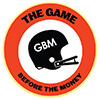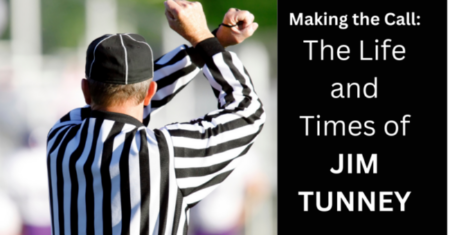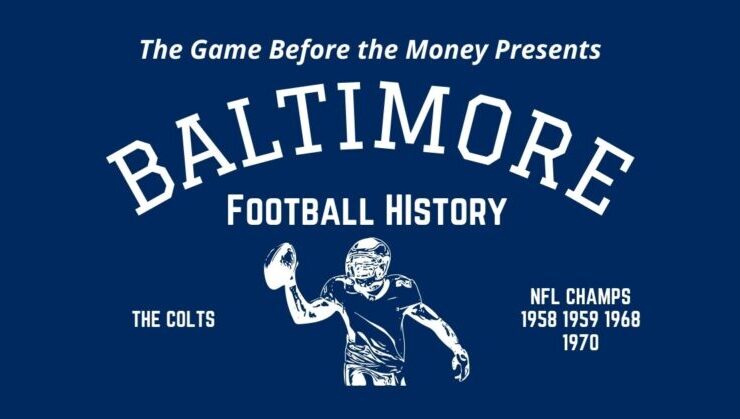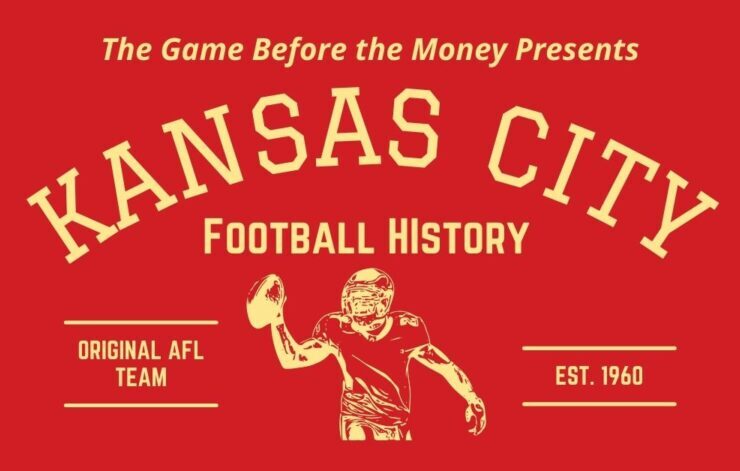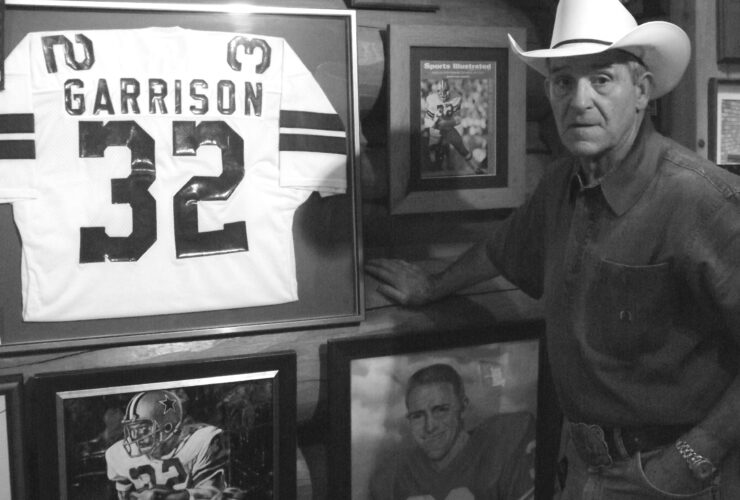Jim Tunney’s journey from a young boy watching his father officiate to becoming one of the NFL’s most respected referees is a story of passion, dedication, and a front-row seat to some of football’s most iconic moments. This blog post is an overview of my oral history interview with Jim Tunney in Novemember of 2022. He shared incredible stories. Listen to the podcast episode for the full range of the interview.
Embed from Getty Images
Jim Tunney Early Life
Growing up in the San Gabriel Valley, Tunney’s love for sports was ignited by his father, a seasoned football and basketball official. As a child, he tagged along to games, carrying his father’s gear and soaking in the atmosphere of the Los Angeles Coliseum, Rose Bowl, and other legendary venues. He witnessed sports history firsthand while he attended games his father officiated. This instilled a deep appreciation for sports and officiating.
A major memory that he shared was seeing Jackie Robinson play football while Robinson was in junior college. Tunney said his father knew Robinson’s potential even then. Tunney’s father told him before the game, “‘You watch number 28, he’s going to be really something someday.’ And he certainly was.”
Jim Tunney’s Officiating Journey
Tunney’s officiating journey began in college, working intramural games for experience. After graduating from Occidental College, he joined the Southern California Football Association, officiating high school and junior college games. His talent and dedication didn’t go unnoticed, and he eventually earned the opportunity to work major college games in the Pacific Coast Conference.
In 1960, amidst the AFL-NFL rivalry, both leagues sought Tunney’s services. He ultimately chose the NFL, marking the start of a 31-year career filled with unforgettable moments.
Memorable Games and Calls
High-profile games and a few controversial calls marked Tunney’s career. He officiated Super Bowl VI, was present at the “Ice Bowl” of 1967 as an alternate, and officiated Tom Dempsey’s record-breaking 63-yard field goal in 1970. He also was the referee for the 1981 NFC Championship Game between the Dallas Cowboys and San Francisco 49ers, made famous by “The Catch” made by Dwight Clark. Each game presented unique challenges, from frozen whistles in sub-zero temperatures to making split-second decisions under immense pressure.
He made two crucial calls in highly critical moments that affected NFL history and spur debate even today.
1965 Colts at Packers Playoff
The first was in the 1965 Western Division Playoff between the Packers and Colts. Don Chandler of the Packers lined up to kick a game-tying field goal late in the game. The ball, in Tunney’s opinion, went directly over the goalpost. He called the field goal good, which sent the game into overtime and Colts fans, players, and head coach Don Shula into protest mode. Many still seethe over the call, believing the kick went wide.
1979 Oilers at Steelers AFC Championship
Another was in the 1979 AFC Championship Game between the Houston Oilers and Pittsburgh Steelers. On an extremely quick play, Oilers quarterback Dan Pastorini threw a pass into the end zone to receiver Mike Renfro. Had the play been ruled a touchdown, the Oilers would have tied the game going into the fourth quarter. No call was made for over a minute until it was finally ruled incomplete.
Tunney said to me during the interview, “We didn’t have instant replay in those days. So it’s all the judgment of the official.” He lamented that he wish he would have had instant replay in that moment to help solve things once and for all in the moment.
Embed from Getty Images
Mike Renfro and Dan Pastorini have also discussed this play with me at length. Their memories, as well as those who were on the field during the play are included in a book and a documentary about the Luv Ya Blue Oilers.
Jim Tunney’s Relationships with Coaches and Players
Tunney’s longevity in the NFL allowed him to build relationships with some of the game’s most iconic figures. He shared stories of interactions with legendary coaches like George Halas, Don Shula, and Bill Walsh, as well as players like Joe Montana and Bart Starr. These relationships highlight the respect and admiration he earned throughout his career. He spoke about those relationships and shared his memories on The Game Before the Money Podcast.
Watching The Evolution of the Game
Having officiated from 1960 to the 1990s, Tunney witnessed the NFL’s evolution firsthand. He observed changes in rules, player athleticism, and the introduction of instant replay. While acknowledging the benefits of technology, he also emphasized the importance of an official’s judgment and experience. You some of his quotes about that at the bottom of this article.
Jim Tunney Legacy and Impact
Jim Tunney’s impact on the NFL extends beyond his on-field calls. He was a respected figure in the officiating community, known for his integrity, professionalism, and unwavering dedication to the game. His story is an inspiration to aspiring officials and a reminder of the crucial role they play in ensuring fair play and upholding the integrity of the sport.
Jim Tunney Oral History Quotes
The following are quotes from The Game Before the Money Oral History Foundation’s interview conducted in November of 2022. Please consider donating to help keep this project going.
On His Early Life and Officiating:
- “My dad was an official and I followed him around.”
- “I would go to the ticket gate and my dad would just say, ‘That’s my assistant behind me with my officiating uniform.'”
- “I was sitting on the bench one day when Jackie Robinson played for Pasadena Junior College… My dad kind of half sat and said, ‘You watch number 28, he’s going to be really something someday.'”
- “I started (officiating) in college… They needed officials for the intramural games… Since I’d been around officiating a long time, I felt I was ready to join them.”
On His Path to the NFL and Officiating Philosophy:
- “You start at the bottom… It was good experience. I devoted time to it.”
- “I was very lucky to be trained early on… and I was only about 23 or 24 when I started working major college games.”
- “The AFL called me in 1960… and the NFL called me the very next day and said, ‘Don’t sign with the AFL, we want you to work in the NFL.'”
- “Replay is a nice backup system, but it’ll never be good enough for you officiating a game.”
- “Replay only has two dimensions height and width. The official has this third dimension called depth perception.”
On Memorable Games and Calls:
- “My first game was the Los Angeles Coliseum between the Chicago Bears and George Halas and the Los Angeles Rams… Being with George Halas was a great honor for me.”
- “I worked a lot of controversial games. One of them, of course, was the 1967 Ice Bowl.”
- “It (the Ice Bowl) was about 30 degrees below zero and very, very cold… The field was frozen… and the whistles were frozen.”
- “Tom Dempsey kicked it, set the record 63 yards at the time… He had a deformed foot… and kicked it 63 yards straight out.”
- “I never saw the catch (The Catch) because I followed Montana. He got knocked to the ground… I followed him all the way to the ground myself.”
- “The Mike Renfro… call… We didn’t have instant replay in those days. So it’s all the judgment of the official.”
On His Relationships with Coaches and Players:
- “George Allen… called me the next day and then bawled me out for making the call. I’ve known George Allen from the beginning.”
- “I was around a long time. I was on the field 31 years… So I saw them (coaches and players) their whole careers. In fact, Coach Shula and I became good friends.”
- “Bernie Kosar… went over to the sideline, talked to Marty Schottenheimer… When Bernie came back to the huddle, I said, ‘Well, did you get any advice from Coach Schottenheimer?’ He said, ‘Not really, but it makes you feel good when I go over and talk to him.'”
- “Joe Montana… We became good friends off the field.”
Embed from Getty Images
On The Evolution of the NFL and Officiating:
- “The game has changed a lot… The rules are different… It’s a different ballgame now.”
- “I’m glad I was able to make those changes, that it’s a different game in 1990 than it was in 1960.”
- “It’s tough for an official… scrutiny of the camera all the time.”
